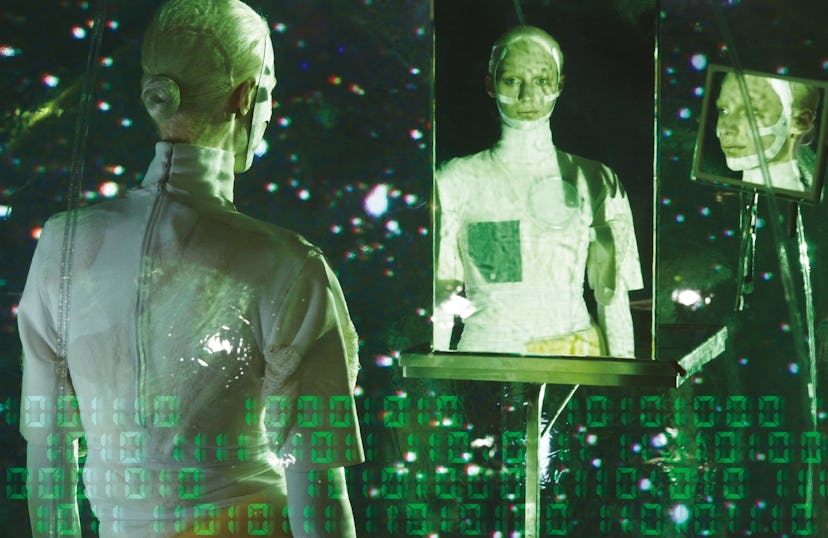Now That A.I. Has Infiltrated Cinema, What’s Next?

With Hollywood agencies snatching up the image rights to deceased film icons like James Dean—who has now been posthumously cast in a movie via CGI—it should come as no surprise that a studio like Warner Bros. has decided to allow artificial intelligence to influence creative decisions.
According to The Hollywood Reporter, the studio just signed a deal with Cinelytic, a start-up platform that “combines A.I. and cloud-based technologies to enable entertainment industry professionals to make faster and better-informed decisions about packaging, financing, producing, distributing and marketing of content.”
The system will assess a comprehensive data bank and provide predictive analytics so that executives have a clear guide to assist them in the green lighting process. The program can also look at an actor’s “value” and predict how much money a film in which they star would make if released in theaters and on streaming platforms. To put it in the simplest terms: robots will predict a movie’s potential for success.
So far, the system will only be tested with the international division of Warner Bros., but Cinelytic’s founder, Tobias Queisser, promises that the technology could work in any territory. The argument for using this sort of A.I. is that it can reduce the amount of time a human would need to spend evaluating a movie or star’s potential for success. Within seconds, the system would be able to find numbers or patterns that might take days to be discovered by a human, if at all.
One fear: because of the A.I.’s influence over the green-lighting process, all of our big-budget blockbusters will end up starring the same six people over and over again. But isn’t that sort of what happens already?
The annual Forbes list of highest paid actors doesn’t change too much from year to year. Sure, the ranking of the world’s top 10 highest paid actors may be shuffled a bit, but it generally features the same few people over and over again. For example, in 2019, the list was topped by Dwayne Johnson, Chris Hemsworth, Robert Downey, Jr., Akshay Kumar, and Jackie Chan, in that order. In 2018 the top five were George Clooney, Johnson, Downey, Jr., Hemsworth, and Chan. In 2017, it was Mark Wahlberg, Johnson, Vin Diesel, Adam Sandler, and Chan. Being one of the world’s highest paid actors doesn’t necessarily equate to being one of the world’s most popular actors, in terms of the personal taste of many executives, but it is pretty obvious that many of the actors who rake in millions of dollars for big budget studio films are the ones who continue to get cast.
The A.I. Warner Bros. plans to utilize could make this worse. And it’s not hard to imagine a future in which a film is denied the green light because A.I. predicts its cast won’t be lucrative enough for the studio.
But with independent studios and distributors like A24—which ostensibly take more risks than the likes of Warner Bros.—reaching new heights of success (just check those box office numbers on The Farewell or Uncut Gems), we can hold off on entering full panic mode for now. It’s a good bet that not every film in the future will be influenced by an A.I. bot.
Having precise data in this sense could be helpful, but it’s important to remember that even A.I. isn’t completely objective. After all, these algorithms are created by human beings, who have their own inherent biases. A.I. has made mistakes and failed on many occasions. Face I.D. systems can be hacked, self-driving cars are not immune to accidents, and a recent A.I. art project from Trevor Paglen and Kate Crawford exposed the racist bias that can be embedded in a system’s DNA
It’s not the end of the world, or even the end of cinema, if a studio plans to use A.I. to assist with creative decisions, but it would behoove Hollywood to be careful with how much power it cedes to the bots.